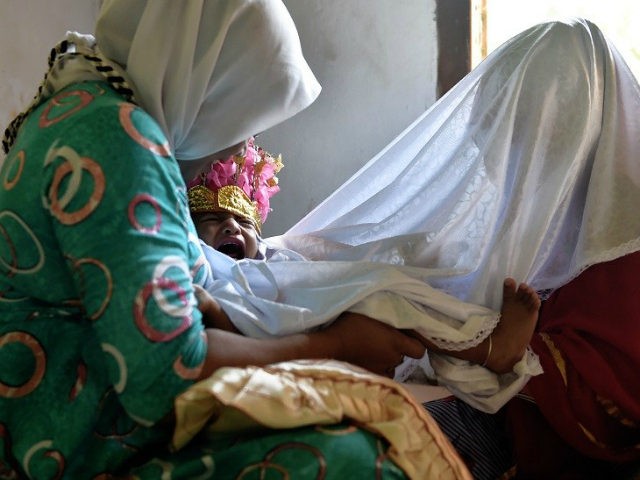London police have failed to bring a successful prosecution for Female Genital Mutilation (FGM), despite almost 750 reports of the grisly crime being dealt with by the force in the past five years.
Over the past decade, the city’s Metropolitan Police Services have referred just 37 cases to the Crown Prosecution Service (CPS), figures obtained by the broadcaster ITV reveal. Meanwhile, 748 people reported FGM concerns since 2013.
If the number of FGM reports made in the period from 2008 remained stable and reflected the figures between 2013 and today, the figures would suggest just 2.5 per cent were referred for prosecution in ten years.
Regardless, none have ended in punishment, and nearly half of all cases of FGM in England are reportedly recorded in London, the broadcaster adds.
In contrast, the CPS has successfully prosecuted around 15,000 “hate crime” offences a year in 2016-17 and 2015-16 across the country, with a large number in London.
FGM has been illegal in the UK for 30 years, but the first charges for the crime were only announced in March 2014, and they ended in acquittal. Three more cases have collapsed since.
France, meanwhile, criminalised the practice around the same time as the UK, and over 100 parents and two practitioners had been prosecuted by 2014 in over 40 criminal cases.
Cris McCurley, a family lawyer who specialises in abuse cases and has worked with families affected, said the CPS has previously been dismissive about the chances of bringing abusers to justice.
She said: “I remember being at a seminar about this years ago and one of the chief crown prosecutors was talking about this.
“She said ‘you’ll never, ever get a prosecution for FGM, it just will not happen’. I think I’m probably more hopeful than that, but I think there’s so much [pressure on the CPS to get a prosecution.
“Nobody wants to criminalise their closest and most dearest family members, but they just want the abuse to stop.”
The CPS said in a statement: “FGM is an abhorrent and damaging practice and we are determined to hold those responsible to account.
“Prosecutors work closely with police offering early advice, but when a case is referred to the CPS for a charging decision a prosecution can only be brought where there is sufficient evidence.
“Factors such as the age and vulnerability of FGM victims, who frequently do not want to report offences that could lead to them giving evidence against their family, make it extremely difficult to secure the evidence required.”
Last year, more than 5,000 new cases of FGM were recorded in the UK, and around 9,000 women sought National Health Service (NHS) help because of the practice.
The figure means there are around 14 new cases every day, and a third of the women and girls seeking help were born in Somalia, according to the NHS numbers.

COMMENTS
Please let us know if you're having issues with commenting.